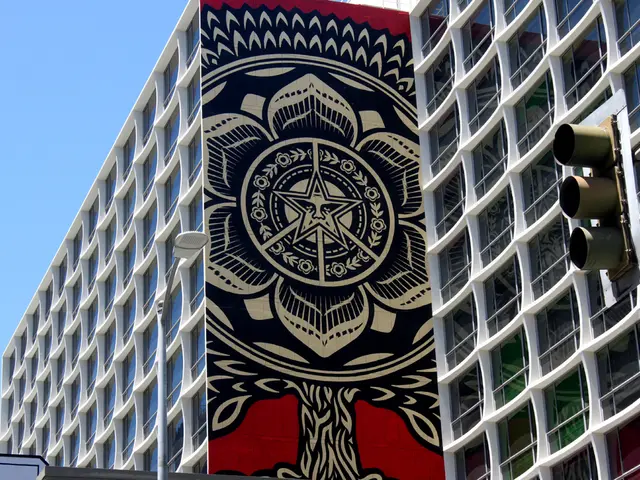Malicious maneuverings in the music industry: the exploitative practice of enlisting artists for illicit money transfers
The hype was real when a new artist in Ghana announced an upcoming concert on Twitter, right smack in the middle of the COVID-19 pandemic. With the economy struggling and a few restrictions just lifted, people were buzzing - but not for good reasons.
One major gripe? The ticket prices. They were, well, astronomical. With a cheapest ticket costing a jaw-dropping GH¢2000 and the most expensive price tag reaching GH¢20,000, many asked, "Is this a pandemic, or a chance to print money?"
As a Risk and Compliance professional with a healthy dose of skepticism, I wondered if the concert and the artist were more than meets the eye. Let's talk about money laundering and how it can blur the lines between illegal and legitimate funds.
Money laundering is the art of taking dirty cash and making it look clean by passing it through a series of legitimate transactions. This illegal activity often partners with organized crime, drug trafficking, and terrorism. And guess what? The music industry isn't completely immune to this threat.
Musicians, music labels, and concert venues can all be used as vessels for money laundering. For instance, a criminal organization might buy a music label and inflate the cost of recording contracts, before transferring the profits through shell companies. Similarly, concert venues might overcharge for tickets, merch, and services, with those profits eventually finding their way back to the criminal group, posing as legit cash.
Artists themselves aren't off the hook either. A criminal organization could use a famous musician to launder money by paying for a performance, then claiming it as a business expense. This allows the organization to deduct the money spent on the musician from their taxes, hiding the origin of the cash.
So what can the government of Ghana do to protect their music industry from these shady dealings? Here are some options:
- Anti-Money Laundering (AML) laws
Enforcing AML laws ensures businesses in the music industry maintain strict reporting and record-keeping requirements. This helps spot fishy transactions and keep money laundering at bay.
- Enhanced due diligence
Requiring detailed background checks on industry players, like owners and managers, keeps people with a shady past from making their way into the industry.
- Increased monitoring and surveillance
Increased oversight of the music industry can help pick up any suspicious activities, such as through financial intelligence, audits, or investigations.
- Cooperation with international agencies
Collaborating with international partners like Interpol and the Financial Action Task Force (FATF) helps share information and resources in the fight against money laundering.
- Public awareness and education
Public education and awareness on money laundering can create a culture of compliance and reduce the chances of illegal activities happening in the industry.
To sum it up, action against money laundering in the music industry means implementing stricter regulations, promoting transparency, and educating industry players. While the music scene is all about creativity and enjoyment, it unfortunately isn't immune to money laundering. By taking action, governments and law enforcement can protect the music industry and the public from these illicit activities.
>>>Note: The author is a Chartered Accountant and Risk and Compliance professional. You can reach him at [email protected].
- The high ticket prices for the concert raised concerns about potential money laundering activities within the music industry.
- As a Risk and Compliance professional, it's important to be aware that musicians, music labels, concert venues, and even artists themselves can be involved in money laundering.
- To combat money laundering in the music industry, the government of Ghana could enforce Anti-Money Laundering (AML) laws, increase monitoring and surveillance, require enhanced due diligence, cooperate with international agencies, and educate the public.
- By taking action against money laundering, governments and law enforcement can not only protect the music industry, but also the public from illicit activities.








